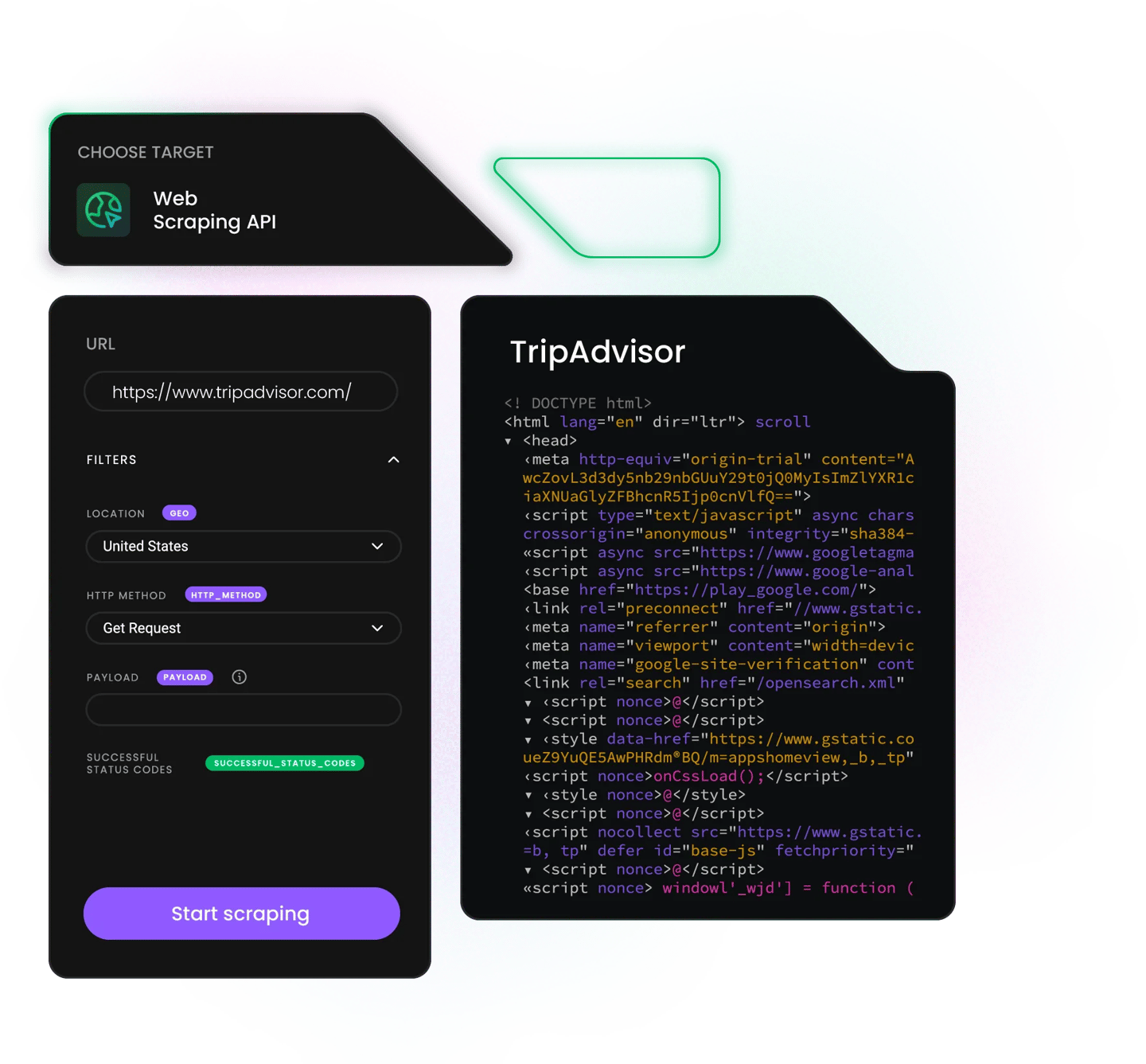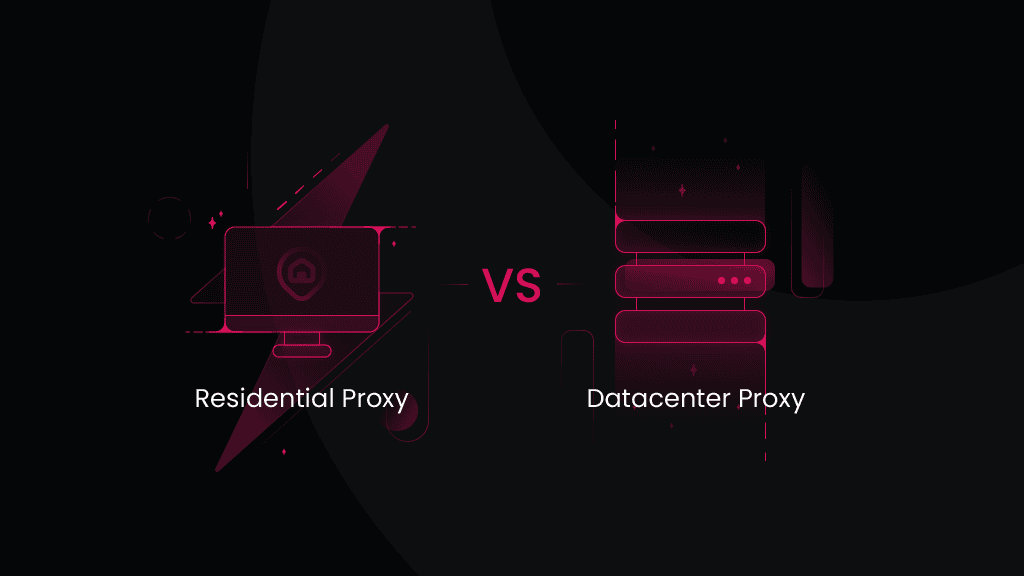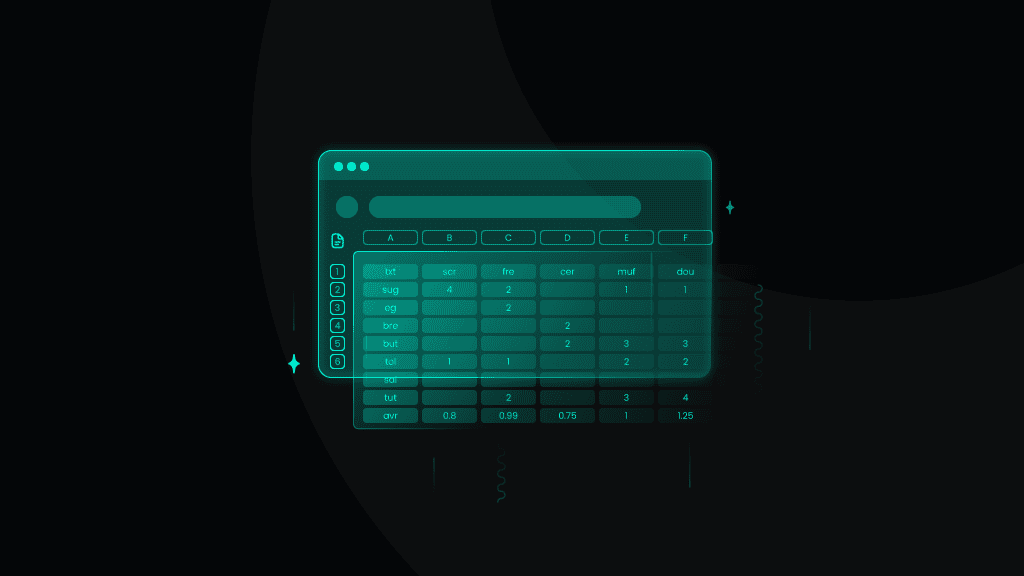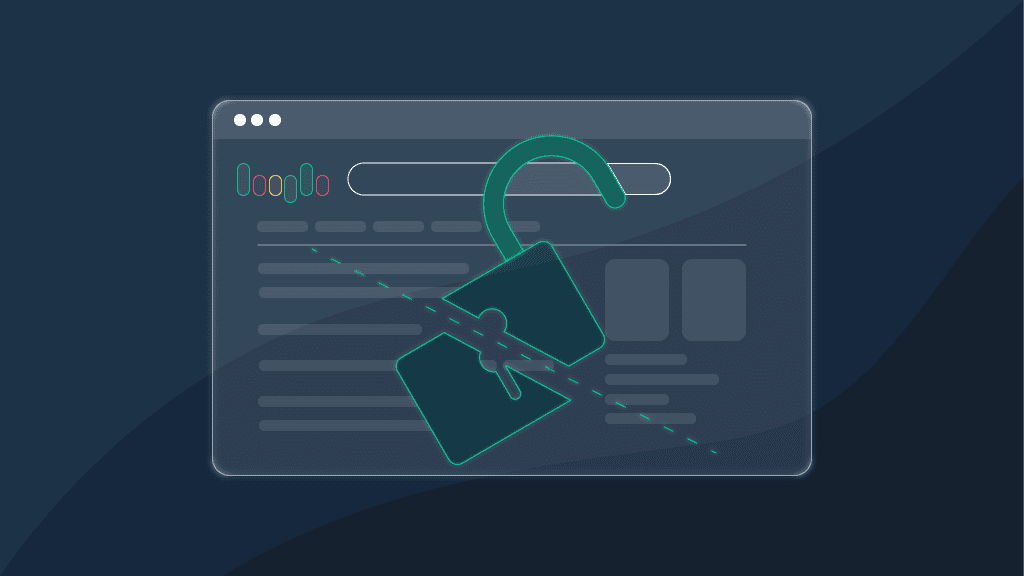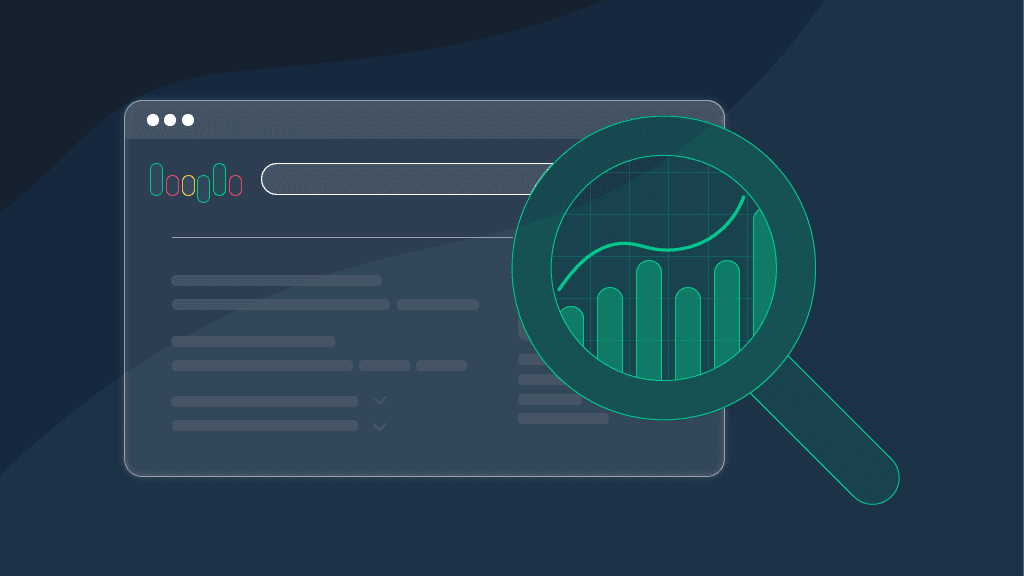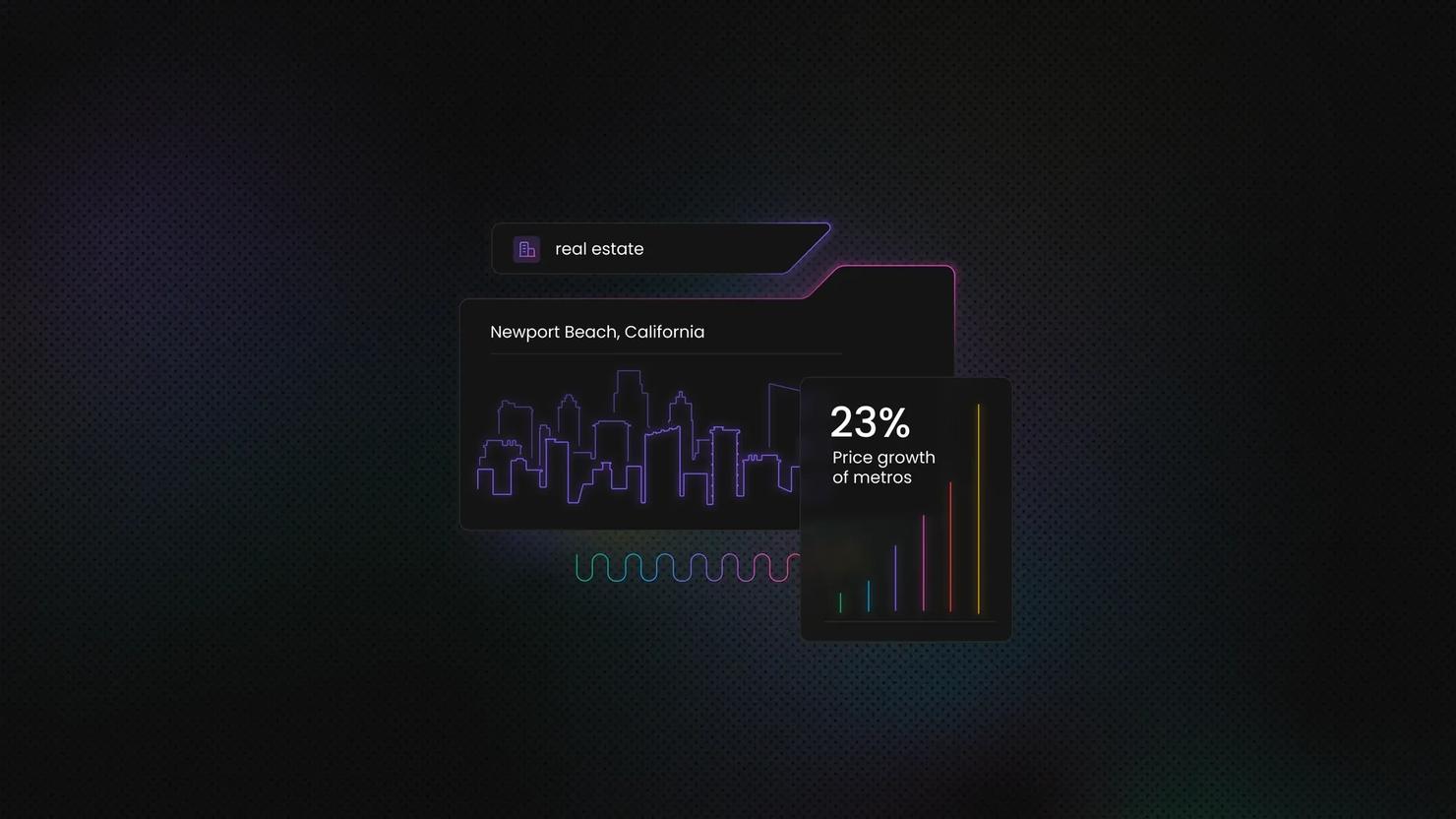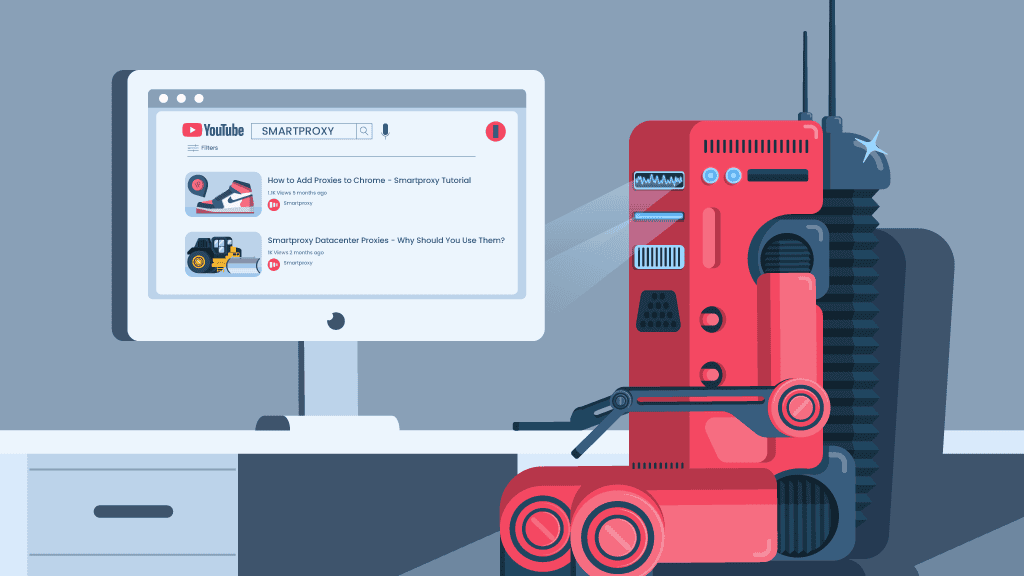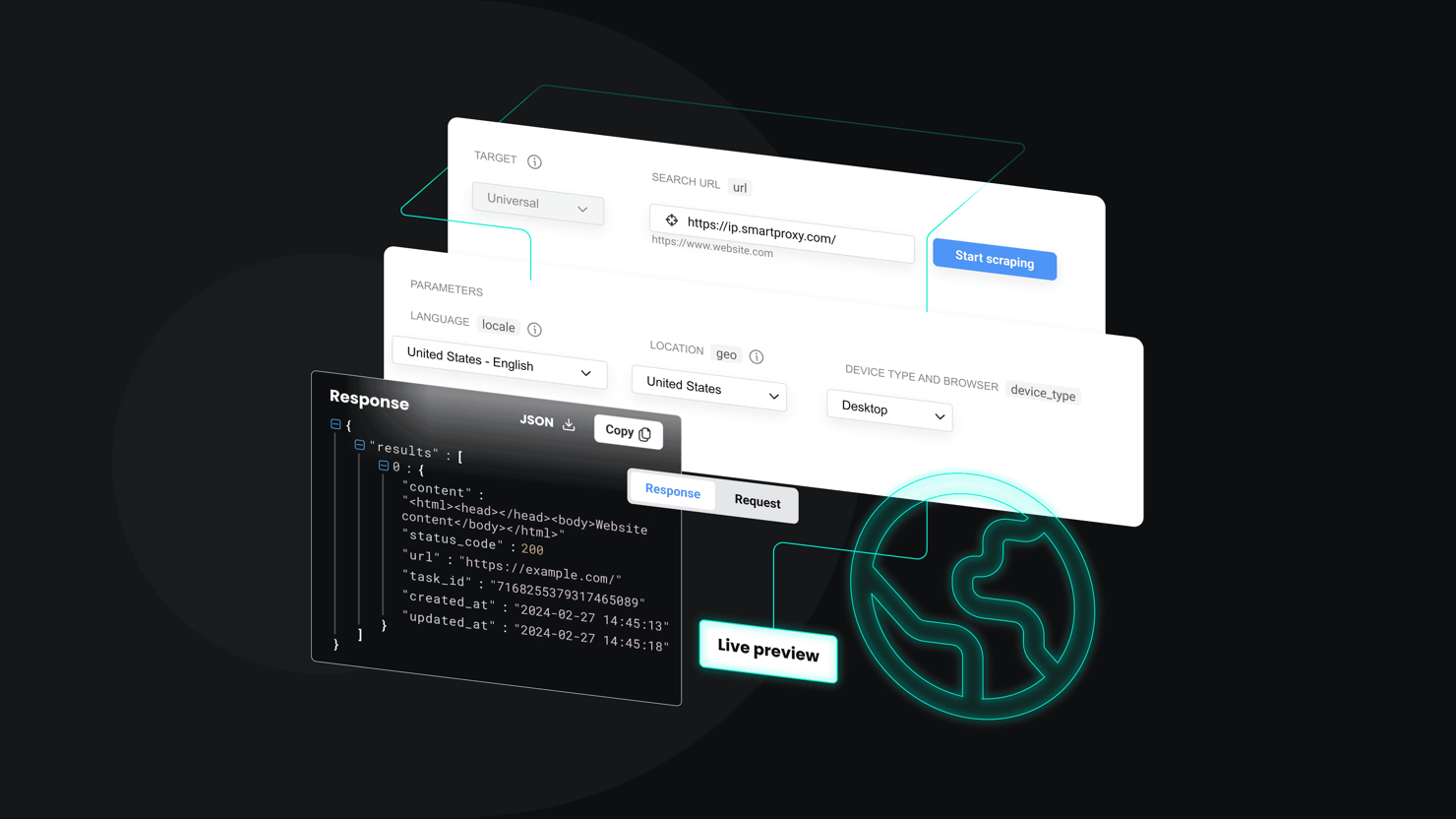Tripadvisor Scraper API
Extract real-time data at scale without getting blocked using our Tripadvisor scraper API* and easily collect reviews, ratings, listings, and other information with a 100% success rate. No CAPTCHAs to solve, no IP bans – just reliable data for your growth.
* This scraper is now a part of Web Scraping API.
125M+
IPs worldwide
99.99%
success rate
200
requests per second
100+
ready-made templates
7-day
free trial
Be ahead of Tripadvisor scraping game
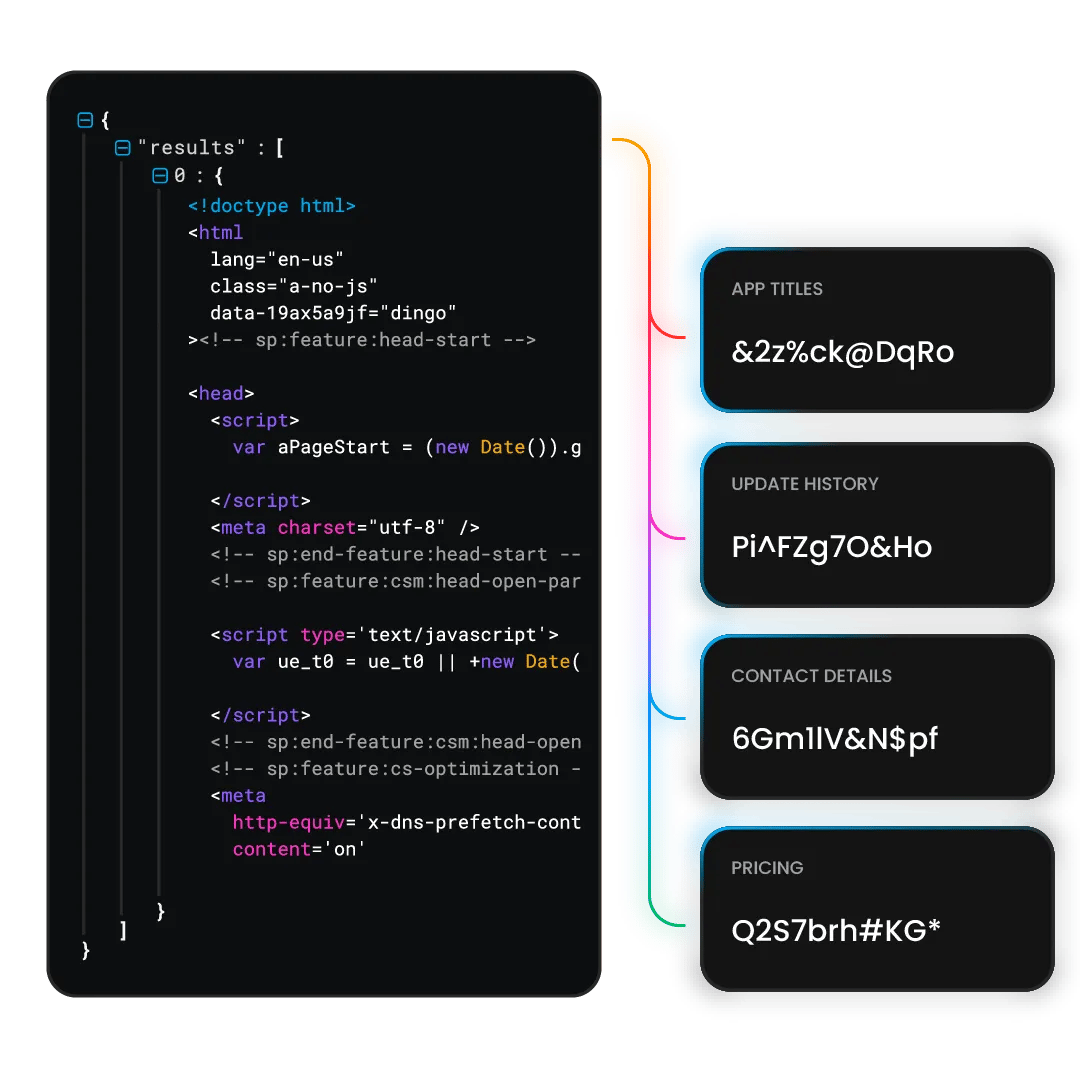
Extract data from Tripadvisor
Web Scraping API is a powerful data collector that combines a web scraper and a pool of 125M+ residential, mobile, ISP, and datacenter proxies.
Here are some of the key data points you can extract with it:
- Hotel, restaurant, and attraction listings
- Business details (address, phone number, website)
- User reviews and ratings
- Traveler photos and review dates
- Popularity rankings and categories
- Location-based search results
- Trip itineraries and travel guides
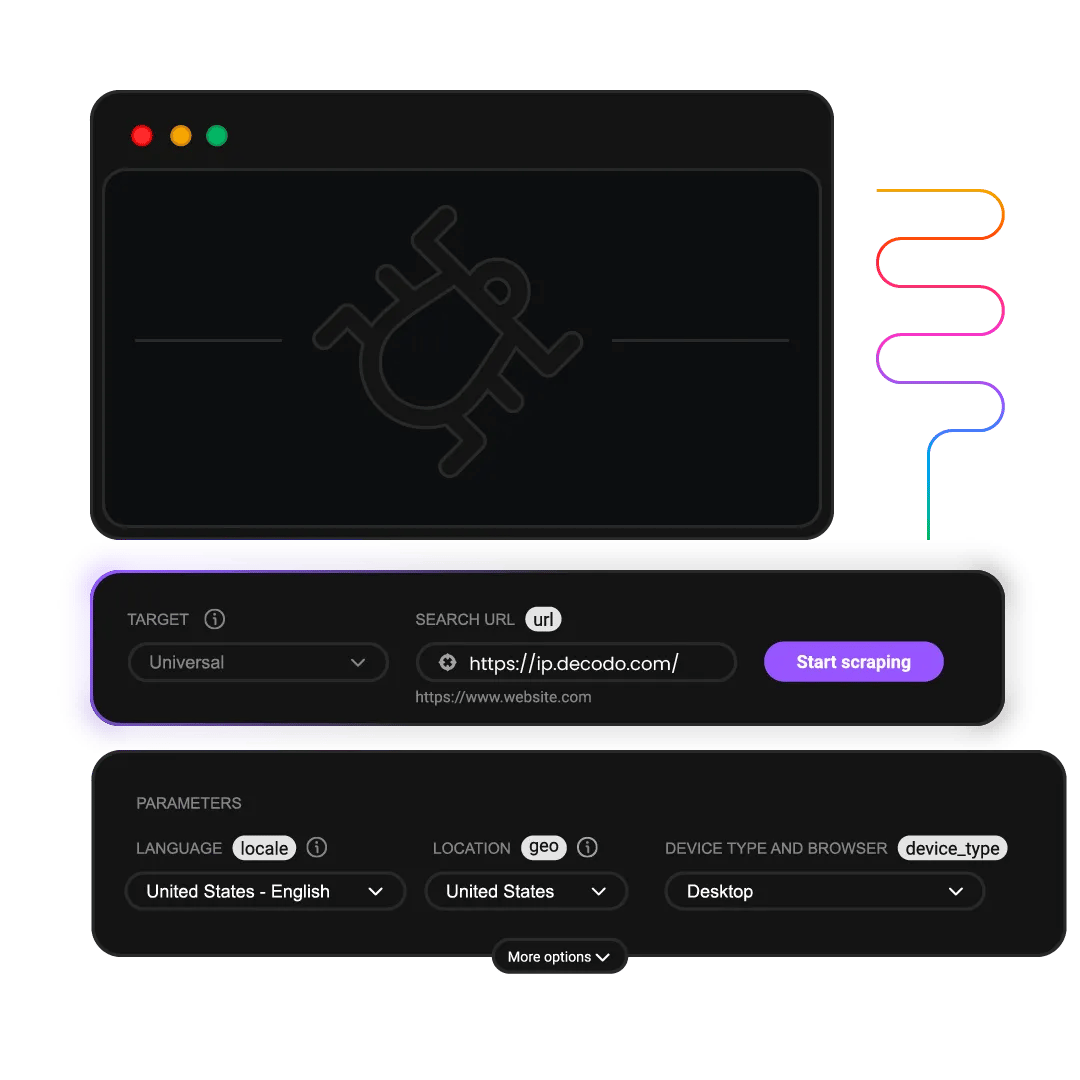
What is a Tripadvisor scraper?
A Tripadvisor scraper is a handy tool that extracts data from the Tripadvisor website.
With our Tripadvisor scraper API, you can send a single API request and receive the data you need in HTML format. Even if a request fails, we’ll automatically retry until the data is delivered, paying only for successful requests.
Designed by our experienced developers, this tool offers you a range of handy features:
Built-in scraper
JavaScript rendering
Easy API integration
195+ geo-locations, including country-, state-, and city-level targeting
No CAPTCHAs or IP blocks
Scrape Tripadvisor with Python, Node.js, or cURL
Our Tripadvisor Scraper API supports all popular programming languages for hassle-free integration with your business tools.
Tripadvisor scraper API is full of awesomeness
Scrape Tripadvisor with ease using our powerful API. From JavaScript rendering to built-in proxy integration, we ensure seamless data collection without blocks or CAPTCHAs.
Flexible output options
Retrieve clean HTML results ready for your custom processing needs.
100% success
Pay only for successfully retrieved results from your Tripadvisor query.
Real-time or on-demand results
Access data instantly or schedule tasks for later scraping based on your needs.
Advanced anti-bot measures
Use built-in browser fingerprinting to dodge CAPTCHAs and remain undetected.
Easy integration
Easily connect our API to your workflows with quick start guides and developer-friendly code snippets.
Proxy integration
Power up your scraping tasks with 65M+ IPs under the API hood and avoid geo-restrictions.
API Playground
Try out scraping solutions directly in the dashboard using the interactive API Playground.
Find the right Tripadvisor data scraping solution for you
Explore our Tripadvisor scraper API and choose the solution that suits you best – from Core scrapers to Advanced solutions.
Core
Advanced
Success rate
100%
100%
Payment
No. of requests
No. of requests
Advanced geo-targeting
US, CA, GB, DE, FR, NL, JP, RO
Worldwide
Requests per second
30+
Unlimited
API playground
Proxy management
Pre-build scraper
Anti-bot bypassing
Task scheduling
Premium proxy pool
Ready-made templates
JavaScript rendering
Explore our pricing plans for any Tripadvisor scraping demand
Start collecting real-time data from Tripadvisor and stay ahead of the competition.
23K requests
$1.25
$0.88
/1K req
Total:$20+ VAT billed monthly
Use discount code - SCRAPE30
82K requests
$1.2
$0.84
/1K req
Total:$69+ VAT billed monthly
Use discount code - SCRAPE30
216K requests
$1.15
$0.81
/1K req
Total:$179+ VAT billed monthly
Use discount code - SCRAPE30
455K requests
$1.1
$0.77
/1K req
Total:$349+ VAT billed monthly
Use discount code - SCRAPE30
950K requests
$1.05
$0.74
/1K req
Total:$699+ VAT billed monthly
Use discount code - SCRAPE30
2M requests
$1.0
$0.7
/1K req
Total:$1399+ VAT billed monthly
Use discount code - SCRAPE30
Need more?
Chat with us and we’ll find the best solution for you
With each plan, you access:
99.99% success rate
100+ pre-built templates
Supports search, pagination, and filtering
Results in HTML, JSON, or CSV
n8n integration
LLM-ready markdown format
MCP server
JavaScript rendering
24/7 tech support
14-day money-back
SSL Secure Payment
Your information is protected by 256-bit SSL
What people are saying about us
We're thrilled to have the support of our 130K+ clients and the industry's best
Attentive service
The professional expertise of the Decodo solution has significantly boosted our business growth while enhancing overall efficiency and effectiveness.
N
Novabeyond
Easy to get things done
Decodo provides great service with a simple setup and friendly support team.
R
RoiDynamic
A key to our work
Decodo enables us to develop and test applications in varied environments while supporting precise data collection for research and audience profiling.
C
Cybereg
Trusted by:
Decodo blog
Build knowledge on our solutions and improve your workflows with step-by-step guides, expert tips, and developer articles.
Most recent
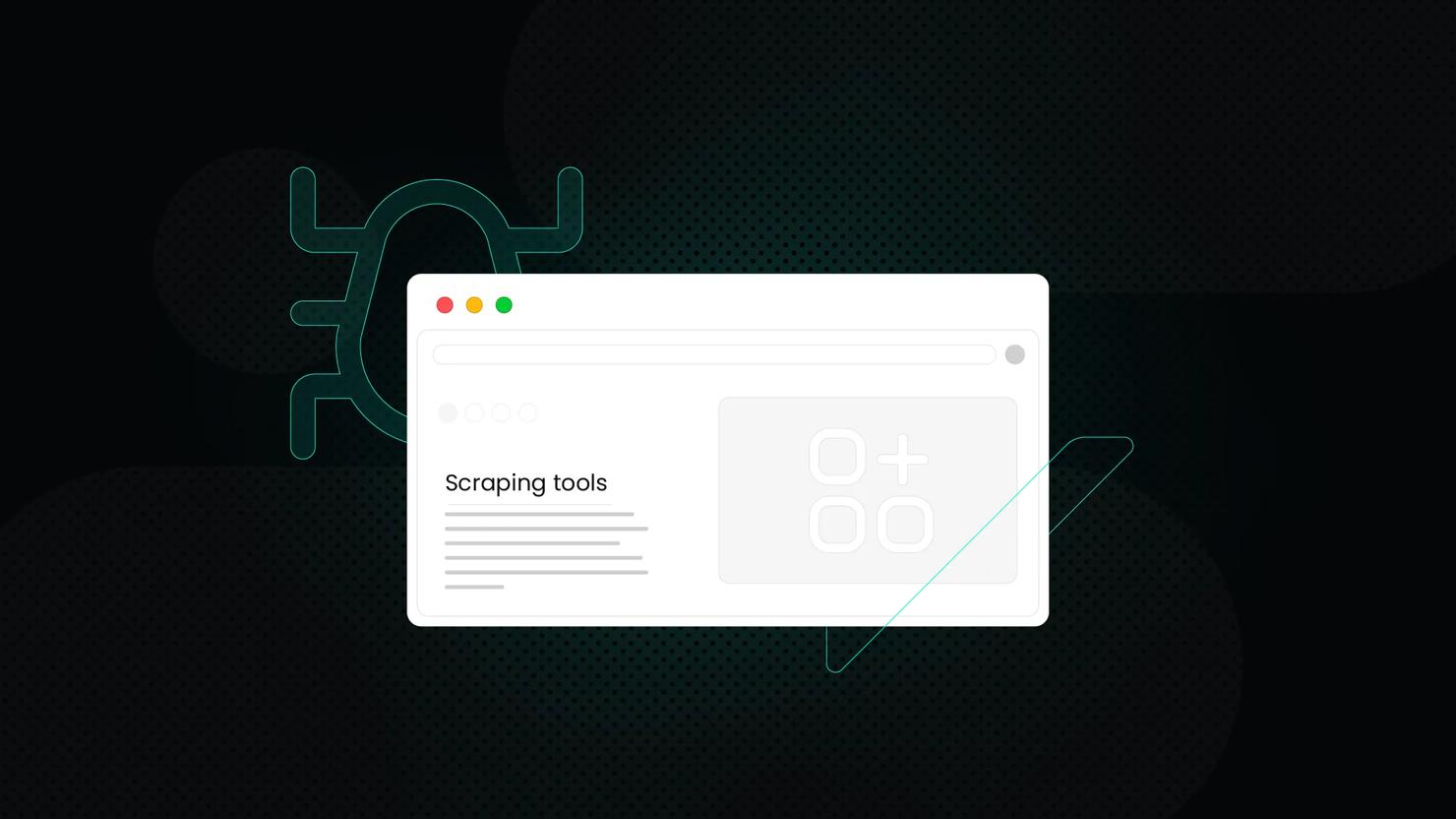
What is Data Scraping? Definition and Best Techniques (2026)
The data scraping tools market is growing significantly, valued at approximately $875.46M in 2026. The market is projected to grow more due to the increasing demand for real-time data collection across various industries.
Vytautas Savickas
Last updated: Jan 30, 2026
6 min read
Frequently asked questions
How can data scraping from Tripadvisor improve my marketing strategy?
Scraping Tripadvisor data helps you gain insights into customer preferences, behaviors, and sentiments, which can significantly enhance your marketing strategy. With data on user reviews, ratings, and common keywords, you can enhance sentiment analysis to understand how people feel about your brand, products, or services. Additionally, trend analysis can highlight emerging customer needs, helping you address the most common pain points that potential customers might face.
What are the benefits of using scraped Tripadvisor data for competitive analysis?
Tripadvisor data allows you to benchmark your and your competitors' performance with customer perceptions. Analyzing reviews, ratings, and offerings of similar businesses helps businesses gain a competitive edge through benchmarking.
Scraped pricing information can also help refine your own offerings and position you more strategically in the market.
How can I integrate Tripadvisor scraper data into my existing applications?
Integrating Tripadvisor scraper data into your current tech stack is seamless with our extensive documentation and quick start guides.
You can automate data retrieval and pair our scraping API with various third-party apps, including CRM platforms or analytics tools. The Web Scraping API also supports real-time and scheduled data extraction, helping you to control how and when data is collected.
What are the benefits of using APIs for Tripadvisor data integration?
The Tripadvisor scraper API helps you eliminate manual data collection and automate insight gathering with just a few clicks. Instead of manual data gathering, scraping APIs deliver real-time, structured data directly into your tools.
This not only saves time but ensures the information is always up to date. APIs reduce the risk of data inconsistencies by providing standardized formats, which makes your data analysis more reliable and scalable.
Can I automate workflows using Tripadvisor scraper API?
Absolutely! The Tripadvisor scraper API is designed to support workflow automation through platforms like Zapier, Make (formerly Integromat), and custom scripts.
You can set up triggers to automatically launch scraping tasks based on time intervals, user actions, or specific events.
Once the data is retrieved, you can automate its processing, like sending it to a database, notifying a team via Slack, or feeding it into a visualization tool.
Is it legal to scrape Tripadvisor data?
The legality of scraping Tripadvisor or any site depends on how and what data you scrape. You can collect publicly available data while following the website’s robots.txt.
To remain compliant, always review the platform’s terms of service, avoid collecting private or copyrighted content, and ensure your use case falls within ethical and legal bounds. When in doubt, consult a legal professional.
Tripadvisor Scraper API for Your Data Needs
Gain access to real-time data at any scale without worrying about proxy setup or blocks.
14-day money-back option
